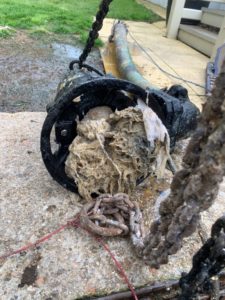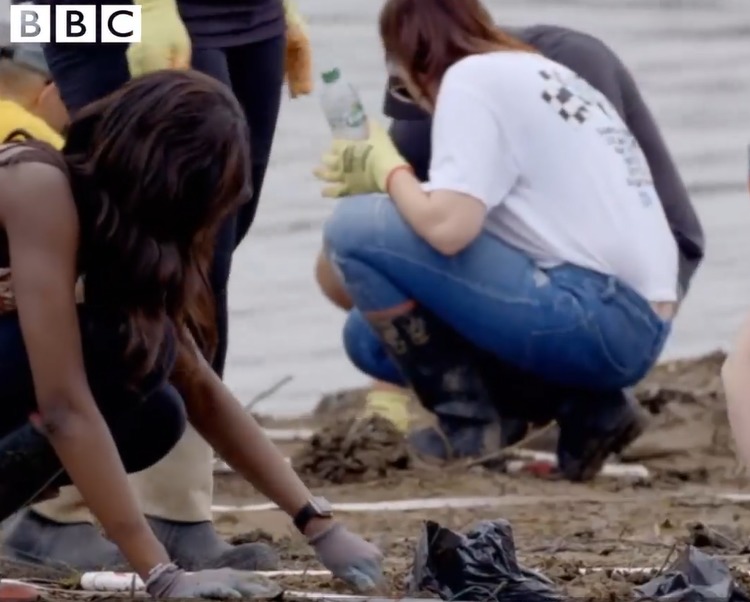Throughout the last decade there has been a call to spread the word on ‘unflushables’ and what can and cannot be flushed down our toilets and sinks. This call has gained a great deal of awareness in more recent years due to news headlines highlighting the issue and the results shocking the public.
Unflushable items can cause devastating damage to our sewers, environment and wildlife. According to Water UK (2019), there are approximately 300,000 sewer blockages annually, costing water companies £100 million every year to clear them. The blockages are caused by items that should never have entered the sewage system in the first place.
Thousands of properties suffer sewer flooding caused by blockages every year in the UK, creating misery for homeowners and businesses and leading to high clean-up bills and increased insurance costs.
In 2017, Southern Water launched their ‘Fighting the Unflushables’ Campaign. This was designed to help people understand how to properly dispose of fat, oil, grease and other items such as wipes, tampons, cotton buds, nappies and condoms. Since then the campaign has helped to reduce blockages across the South by 13% although there is much more that still needs to be done.
What’s so bad about flushing unflushables?
It’s vital that we all think about the items we put down our sinks and toilets. Water companies ask that we only flush the 3P’s (pee, poo and paper). Items such as wet wipes, despite being labelled as suitable for flushing, are not and do not disintegrate in water like paper does – it is always better to bin these items.
Some people may have the ‘out of sight, out of mind’ attitude because when they flush something down the toilet it is no longer their responsibility. However, all of these unflushable items build up very quickly in the sewer network and congeal into fatbergs. These restrict the flow in sewers and cause blockages and raw sewage to back up into homes and businesses.
As for the environment, plastics in cotton buds and wipes can make their way to oceans and river beds which cause long-term problems for sea creatures and the marine environment. Just take a look at the video below from BBC Earth to see what happened to some wet wipes that made it out of the sewage system!
CountyClean Group fighting fatbergs
The Group has helped to clear blockages of all sizes in sewer and drainage systems, including a 15 tonne bus-sized fatberg for Thames Water in Surrey. Due to a huge number of wet wipes mixing with tonnes of food waste the sewer was reduced to just 5 percent of its normal capacity.
Our experienced and skilled teams cleared the blockage quickly and efficiently and continued to assist Thames Water over a number of weeks to remove the remaining grease and debris in their sewer pipelines.
During the cleansing process, our state of the art mainline CCTV camera unit was utilised to survey and monitor the sewer, as well as highlight additional previously unknown issues with the brick work. Following the survey, a full WinCan CCTV report was created on site and immediately sent to Thames Water highlighting remediation works that were required.
So what can we all do to help?
There are some simple changes we can all make to do our part in preventing undesirable items entering our sewage system. We can stop fuelling the creation of fatbergs and causing harm to the ecosystem by:
- Clearing plates – scrape leftover food residues from plates, pans and utensils into the bin before washing up
- Always allow fats, oils and grease used in cooking to cool and solidify. Once cooled then throw into the bin or reuse it for future cooking. Pouring boiling water down the sink to dissolve fat and grease does not work.
- Bag it and bin it – use scented nappy sacks or dog poo bags (bio-degradable if you can) to throw away any wipes, nappies, cotton buds, sanitary items or condoms.
- A simple sink or drain strainer can stop food and hair getting into the pipework.
- Use environmentally friendly beauty/sanitary items e.g. wooden handle cotton buds, bio-degradable wipes or microfibre cloths to remove makeup, more information on these products products can be found here.
For more information regarding our article or services we offer, please call our friendly team at any time on 0800 171 2208 or 01323 714818, watch our video or browse our brochure.


